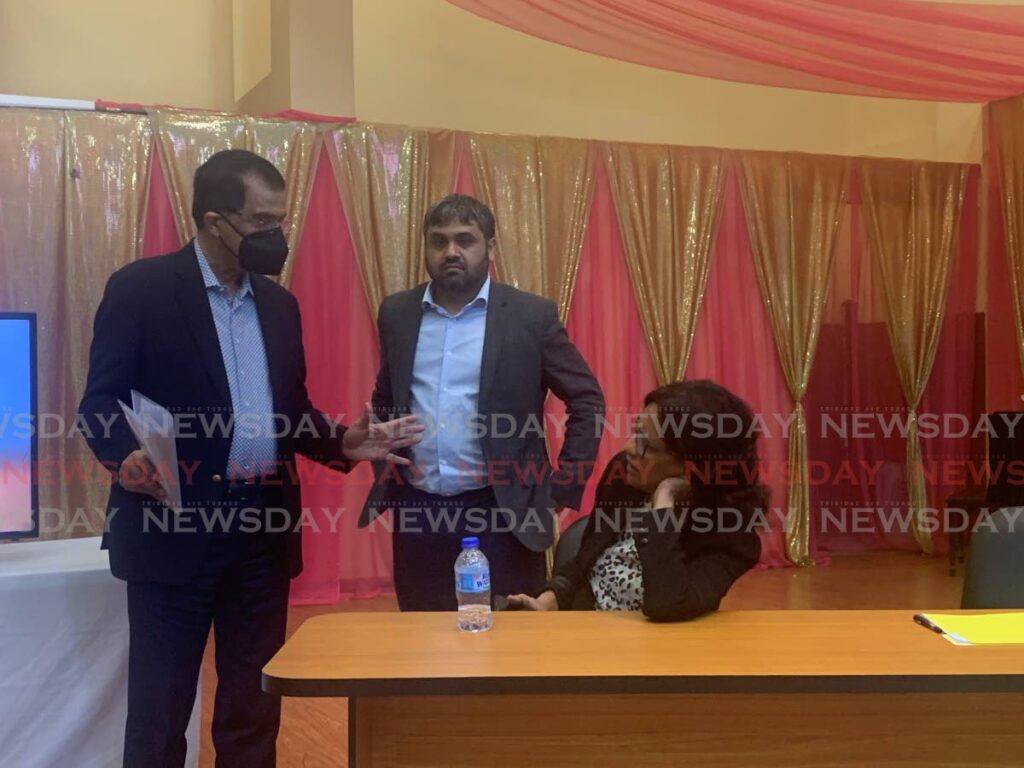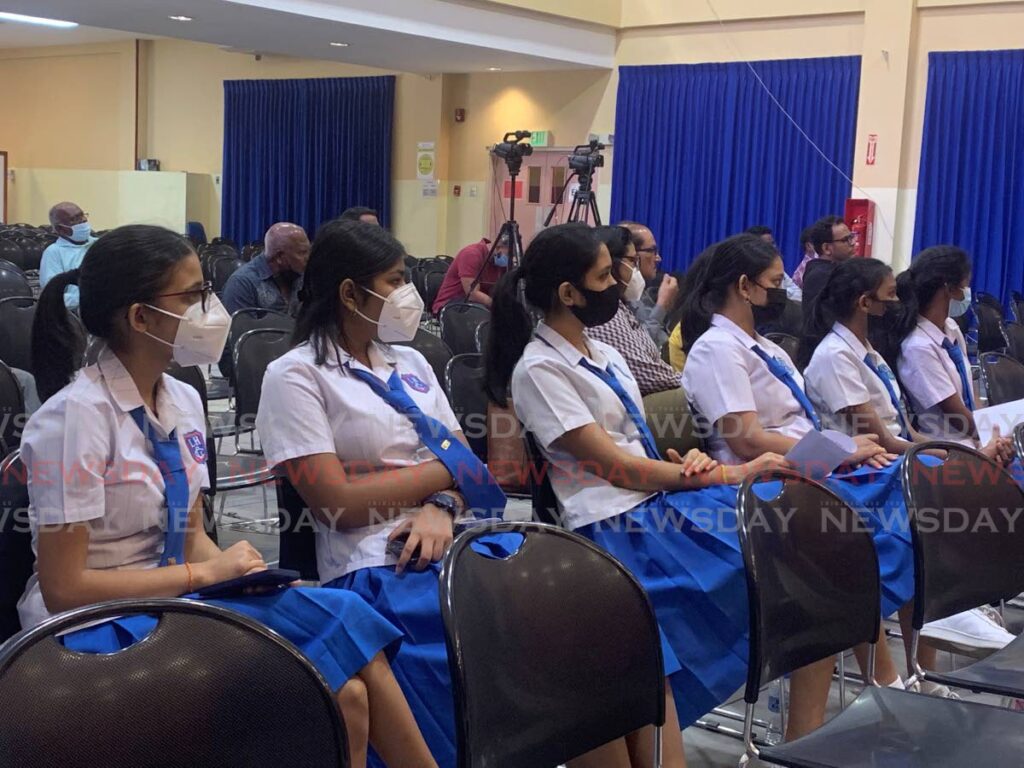Ramesh Maharaj: Let the people decide on Privy Council

FOR 189 years the Judicial Committee of the Privy Council has served as this country's final appellate court in civil and criminal matters and any move to abolish it in favour of the Caribbean Court of Justice (CCJ) ought not to be decided by politicians.
This is the view of former attorney general Ramesh Lawrence Maharaj SC, during a symposium hosted by the Sanatan Dharma Maha Sabha, at its St Augustine headquarters on Saturday. Law school lecturer and former government minister Karen Nunez-Tesheira, Anand Beharrylal SC, a British Queen's Counsel of TT parentage and attorney Kiel Taklalsingh shared the platform with Maharaj. Beharrylal joined via a live video link from the UK. Former attorney general Faris Al-Rawi had also been invited but was unable to keep the date owing to prior commitments.
In the audience were Upper Six students of Lakshmi Girls' Hindu College, lawyers, pundits, executive members of the SDMS. The event was streamed live on Radio Jaagriti.
Maharaj said while the Privy Council may be replaced in the next ten to 15 years any government considering such a radical move should allow the people of the country to decide by way of a referendum as the citizens are the "most important stakeholder in the administration of justice."
He said to engender trust and confidence the administration of justice "must be pure" there must be no doubt, judges must be independent, fearless and behave in a way both in public and private life for people to have respect for them.
He said were it not for the Privy Council his conviction for contempt of court and seven-day jail term imposed in April 1975 would not have been overturned.
"We can all agree that people must have trust and confidence in the justice system," he said. Maharaj said he was attorney general when the CCJ came into being and sees it as an important institution to resolve disputes involving the interpretation of the treaty of Caricom in its original jurisdiction.
He said he took the position then that if the country wanted to accede to the CCJ as the final appellate court for civil and criminal matters it was a matter for the people to determine. He said the court has had and is now staffed by competent distinguished judges.
"I believe in ten to 15 years the Privy Council will ultimately be removed as the final appellate court."
Maharaj said the present PNM government did not have the requisite majority to abolish the Privy Council and referred to the wisdom of former prime minister Dr Eric Williams, who in post-Independence refused to abolish it even though he had the majority of parliamentary seats, as Williams felt it was a matter the people of the country had to resolve.
Maharaj said as far as he was aware the present government had not signalled its intention to abolish the Privy Council.
"There must be legitimacy and the only way to have legitimacy is for the people to vote in a referendum," he said.
"If a government wants to serve the people it would want the vote of the people before taking such a decision."

He said in the Caribbean there have been eight attempts in the past to get the views of the people on the retention of the Privy Council in the countries of Bahamas, Nevis, Grenada, St Vincent and the Grenadines and Guyana between 1970-2016 and only once the vote was in favour of the abolition in what many regarded as a "rigged vote" during the Forbes Burnham regime in Guyana.
Maharaj said the government could enact legislation to call referenda with its simple majority and said any government in power "has a duty to consult the people" on such a radical move.
Both Nunez-Tesheira and Taklalsingh spoke about the prohibitive costs in taking matters before the Privy Council by the average citizen and noted that most of the cases which are determined in that jurisdiction involved the State of big business. He said the argument that the Privy Council was a "relic of our colonial past" could not be supported as many of the laws in force in TT today originated in the UK and much of the legislation governing many aspects of life are also rooted in post-colonial laws.
"It is quite hypocritical for the State to argue the Privy Council is a relic of the colonial past and ought to be removed," she said, even as many commercial disputes worldwide are now being resolved through arbitration in the UK. He said some of the arguments to abolish the Privy Council are "xenophobic and improper."
Taklalsingh said it it not far fetched to suggest that independent institutions can be influenced by the executive arm of government and urged that TT should continue to retain the Privy Council until "we establish trust and confidence" in the judiciary, which includes the appointment of judges and speed at which judgments are delivered.
He said the Privy Council being far removed for the local jurisdiction provided "more insulation from the executive ...for our apex court."
Nunez-Tesheira said one of the arguments against the Privy Council was its abolitionist stance against the death penalty and through the rulings of the Law Lords in England they had effectively neutralised the mandatory death penalty in the Caribbean.
Beharrylal gave a historical connection of TT to the Privy Council provided an overview of the court's importance to TT.


Comments
"Ramesh Maharaj: Let the people decide on Privy Council"